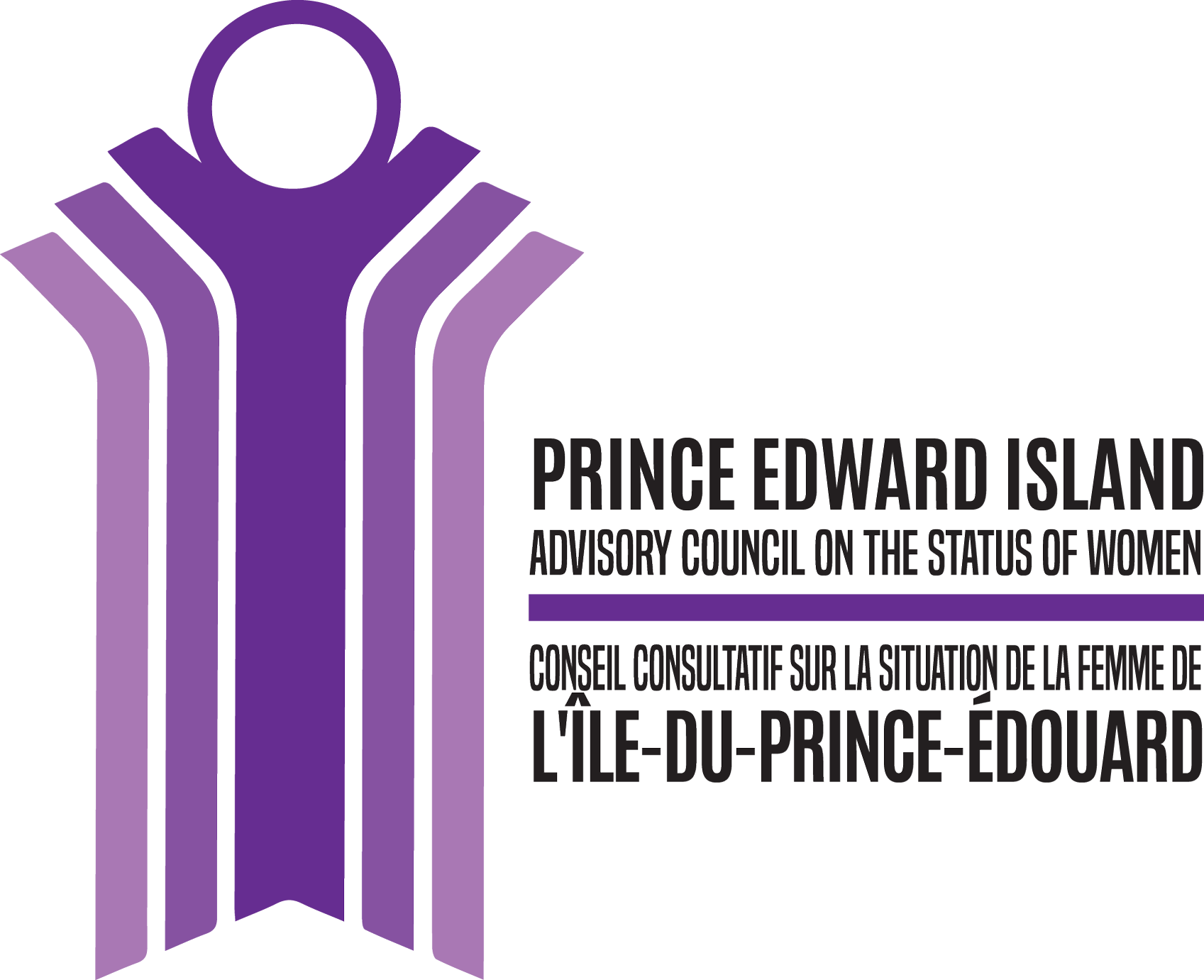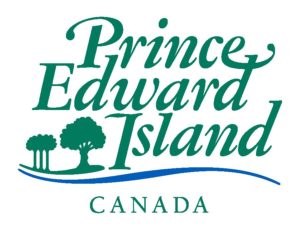FEEDBACK ON THE CONSULTATION REPORT ON
REFORM OF FAMILY LAW IN RELATION TO CHILDREN
PEI Advisory Council on the Status of Women
March 6, 2020
CONTEXT AND HISTORY
The Prince Edward Island Advisory Council on the Status of Women (PEIACSW) is a nine-member, government-appointed arms-length government agency with a mandate to advise government and educate the public on matters that relate to the status of Prince Edward Island Women. The Council is pleased to have this opportunity to respond to the consultation report on reform of family law in relation to children.
The Advisory Council on the Status of Women has a long history of providing advice on issues related to family law and considering children. In 2011, the PEI Advisory Council on the Status of Women partnered with Community Legal Information to host a Think Tank on Access to Family Justice. The Council supported all the recommendations that came out of that process, including recommendations for support and appropriate process to resolve family law issues before entering the court process; education regarding alternative dispute resolution; increased access to mediation and other alternative dispute resolution in those cases where it is appropriate and safe; and training for families in negotiation, conflict resolution and communication skills. In the past dozen years, the Equality Report Card process has in all reports assessed issues relating to family law and children. (See Equality Report Cards from 2008, 2009, 2011, 2013, 2015, and 2018.) The 2018 Equality Report Card specifically called for “Steps towards expanded resources for family mediation, counselling, and conflict resolution that reduce/prevent families from requiring legal proceedings” and offered a response to changes in family law legislation, policies, programs, and services that affected children.
The PEI Advisory Council on the Status of Women is a member of the Premier’s Action Committee on Family Violence Prevention (PAC), and Advisory Council staff had the opportunity to consult with representatives of PAC’s Administrative committee in preparation of the comments below.
RESPONSES TO PROPOSED CHANGES TO FAMILY LAW LEGISLATION RESPECTING CHILDREN
1. Promoting out-of-court dispute resolution where there is a family law dispute respecting a child
The Advisory Council on the Status of Women, in general, supports promoting out-of-court dispute resolution and in particular when there is a family law dispute respecting a child. Access to the courts compounds challenges for gaining access to programs and services that can only be accessed with a court order.
That being said, participation in out-of-court resolution processes must be assessed as appropriate and safe in each instance. Entry into any form of out-of-court dispute resolution requires robust screening for family violence and for power imbalances that could result in imbalanced resolutions. Screening should always at a minimum be gender-sensitive, trauma-informed, and culturally appropriate. Mandatory discussion of out-of-court options and information sessions for parties to a dispute should only proceed after screening.
a) There is a risk that mandating a discussion about out-of-court dispute resolution (a) and promoting out-of-court options (c) could be received as pressure to conform; this pressure may be felt differently depending on the gender of the party to the dispute and, especially, to their experience of oppression. For example, women who are, as a group, socialized to be cooperative and obedient may hear a promotion of out-of-court options differently than men, who are, as a group, socialized differently. An Indigenous woman who has experienced intergenerational trauma or direct trauma as a result of oppressions supported by law will hear “promotion” of options differently than a settler Canadian who may have only experienced benefit from Canadian law.
The statutory duty to discuss (a) and the requirement to participate (c) are both instances where the wording in the actual legislation will be very important. The draft legislation should likewise be specific about what kinds of information are required to be provided in discussion or in information sessions to promote out-of-court options.
b) The Advisory Council on the Status of Women supports increased integration of dispute resolution professionals such as parenting coordinators, child support adjudicators, and family mediators in family law matters.
There is need to examine barriers to access to these professionals: enabling legislation is not meaningful unless people can access and use the programs and services and the programs and services have sufficient resources to meet the community need. It is our advice that the legislation should reduce barriers, where that is possible, appropriate, and safe.
In the case of parenting coordination, access to the program is by referral after there is a court-ordered parenting plan. This pathway to parenting coordination leaves a lot of potential for barriers. Is there need in the legislation for delegated authority to the parenting coordinator to arbitrate parenting plans from the outset, rather than being limited to coordinating with what the court provides?
In the case of child support adjudicators and family mediators, changes to the legislation could be helpful in reducing barriers, in disputes where it is appropriate and safe to mediate, but only if there are resources allocated to adjudicators (a role which, to the best of our knowledge, doesn’t yet exist) and increased resources and staffing to mediators to meet increased demand.
It is recommended that the Department of Justice and Public Safety additionally explore expanding the provisions in legislation to allow increased access to supervised access and exchange by expressly permitting appropriate dispute resolution professionals to refer people into this program, which currently is only available to those with a court order.
It is also important to us that sites for supervised access and exchange be available in neutral locations with appropriate security arrangements, in numerous communities across PEI, and at hours that meet then needs of parents and caregivers.
c) As noted, a lot about the mandate to get information is not clear. A key question for people who would be mandated to receive information or attend information sessions would be what consequences would result if you don’t go for the information session or dispute resolution. Who would enforce the mandatory information sessions, and how? What would be the potential effects of mandated information, and how would these be received differently by people from different groups? If in-person information sessions were mandated, what supports would be available to parties to participate, such as child care support or travel support? If required but not designed to accommodate parents’ needs, the requirement to participate could disadvantage one party over another.
2. Updating statutory presumptions respecting parentage
In 2017, the PEI Advisory Council on the Status of Women made two recommendations regarding changes to legislation regarding surrogacy. At that time, we recommended undertaking a jurisdictional scan of progressive and surrogacy-friendly legislation and policy in other provinces and territories of Canada, and examining PEI’s current and other provinces’ and territories’ legislation and policies with a rigorous gender and diversity lens, sensitive to outcomes for parents, surrogates, and children, to eliminate potential discrimination.
We are pleased to note that PEI’s child status legislation will be updated to align with the best legislative practices adopted in other Canadian jurisdiction, to address presumptions of parentage when there is use of assisted reproduction.
The PEI Advisory Council on the Status of Women supports in principle the proposed changes to legislation updating statutory presumptions respecting parentage. Again, we would like to reserve the option to comment again when the draft wording of legislation is available.
3. Aligning provincial statutes with the Divorce Act (Canada)
The PEI Advisory Council on the Status of Women agrees in general with the proposal to align provincial statutes with the Divorce Act (Canada) and agrees that the language of the Divorce Act is preferable to the language used in current provincial legislation. It is especially a relief to see changes to the outdated term “custody” that undermines the personhood of children and implies they are property.
Describing the factors to be considered by a court in determining the best interests of the child will be important legislative work. We agree that the best interests of the child is the best test. We would support using the best interests of the child provisions and factors in the Divorce Act amendments at s. 16. These seem very reasonable. Again, we would like to reserve the option to comment again when the draft wording of legislation is available.
With regard to aligning the provincial statutes with the Divorce Act, beyond legislative changes, we identify the need for policies to operationalize the application of the definitions, particularly to operationalize these in the programs and services available at the Family Law Centre. Policies to operationalize the new definitions might look like practice notes. It is our understanding that a practice note currently underpins pre-motion conferences in family law in the provincial court, a practice that the Advisory Council on the Status of Women has strongly supported; it is our understanding that practice notes are put out by the chief judge. We are sure there are various options for policies to operationalize updated definitions.
4. Improving access to the family justice system
As noted throughout this response document, the PEI Advisory Council on the Status of Women supports out-of-court dispute resolution processes where those are appropriate and safe (that is, sensitive to factors of violence and power imbalances) and therefore supports the proposed changes of legislation that enhance access.
Again, we would note that to the extent that legislation can reduce barriers to accessing programs and services, changes to legislation should do so.
5. Addressing family violence
Family violence continues to be a significant factor in many families in Prince Edward Island. Preventing violence against women and children continues to be a focus of the PEI Advisory Council on the Status of Women. The context of family violence presses families into family law processes and into court; at the same time, it makes victims and survivors of family violence particularly vulnerable to gaps in access to justice.
There is a lack of detail in the consultation paper regarding addressing family violence. As noted previously, for the presence of family violence to be considered when people enter family law processes, excellent assessment and screening mechanisms are required, and legislation should require or enable robust screening, timed correctly for people to be directed to the right processes, programs, and services.
In considering family violence in family law processes, a number of important questions require investigation, including the following:
- Considering family violence a factor even if it was in the past
- Considering family violence even if the police were not called
- Examining how the child experienced family violence
- Examining the impact of abuse on the victim’s parenting (for example, understanding hypervigilance as a trauma response)
- Examining the parenting skills and capacities of an abuser
- Considering aspects of co-parenting that allow the continuation of control on one parent over the other
It is our understanding that the Association of Family Conciliation Courts has adopted practice guidelines that reflect evidence-based good practices for assessing and addressing various forms of family violence. There is ample opportunity to consider these questions well, for the benefit of children and families. There is ample research and evidence to help identify good practices in answer to these concerns. Granted, it will be hard to legislate getting to good answers on these complex considerations. Can legislation require or enable policy, protocols, or training that incorporate child-centred and victim-centred principles?
Considering the presence of family violence frequently requires appropriate information-sharing among services. Changes to legislation may need to include mandates for information-sharing or information-gathering among specific services; particularly information-sharing and information-gathering may need to be considered under the scope of authority delegated to dispute resolution professionals outside the court.
The definition of family violence will be an important factor in considering family violence in family law legislation. In this context, the PEI Advisory Council on the Status of Women supports retaining the provincial definition of family violence, with the addition of some helpful language from the federal definition. For example, the preamble of the federal Divorce Act definition is strong:
“Family violence” means any conduct, whether or not the conduct constitutes a criminal offence, by a family member towards another family member, that is violent or threatening or that constitutes a pattern of coercive and controlling behaviour or that causes that other family member to fear for their own safety or for that of another person — and in the case of a child, the direct or indirect exposure to such conduct…
Several useful elements of this preamble could strengthen the PEI definition, including reference to “a pattern of coercive and controlling behaviour” and inclusion of “another person” affected by family violence but not defined as a family member (this could include, for example, a victim’s new partner or their helpers and supporters who may be under threat).
It should be noted that the federal definition does not include a definition of “victim,” which the PEI definition does. Other useful elements from the federal definition that could be helpful added to the Prince Edward Island definition include clear exclusion from the definition of “reasonable force to protect themselves or another person” and explicit reference to killing or harming an animal as an act of family violence.
CONCLUSION
The PEI Advisory Council on the Status of Women has been very pleased with developments in legislation and programming that consider children and enhance family law services for children. The introduction of parenting coordination, a supervised access and exchange program, and the Office of the Children’s Lawyer all appear to be steps in the right direction. However, the effects of these programs and services can only be known with proper evaluation. It is our view that proper evaluation includes gender and diversity analysis.
If there are opportunities in the changes to legislation to mandate evaluation and review of family law policies, programs, and services respecting children, we recommend that these be mandated.
The PEI Advisory Council on the Status of Women appreciates the opportunity to respond to this consultation report and looks forward to an opportunity to make input on draft legislation when it becomes available for review.
Sincerely,
Debbie Langston, Chairperson


